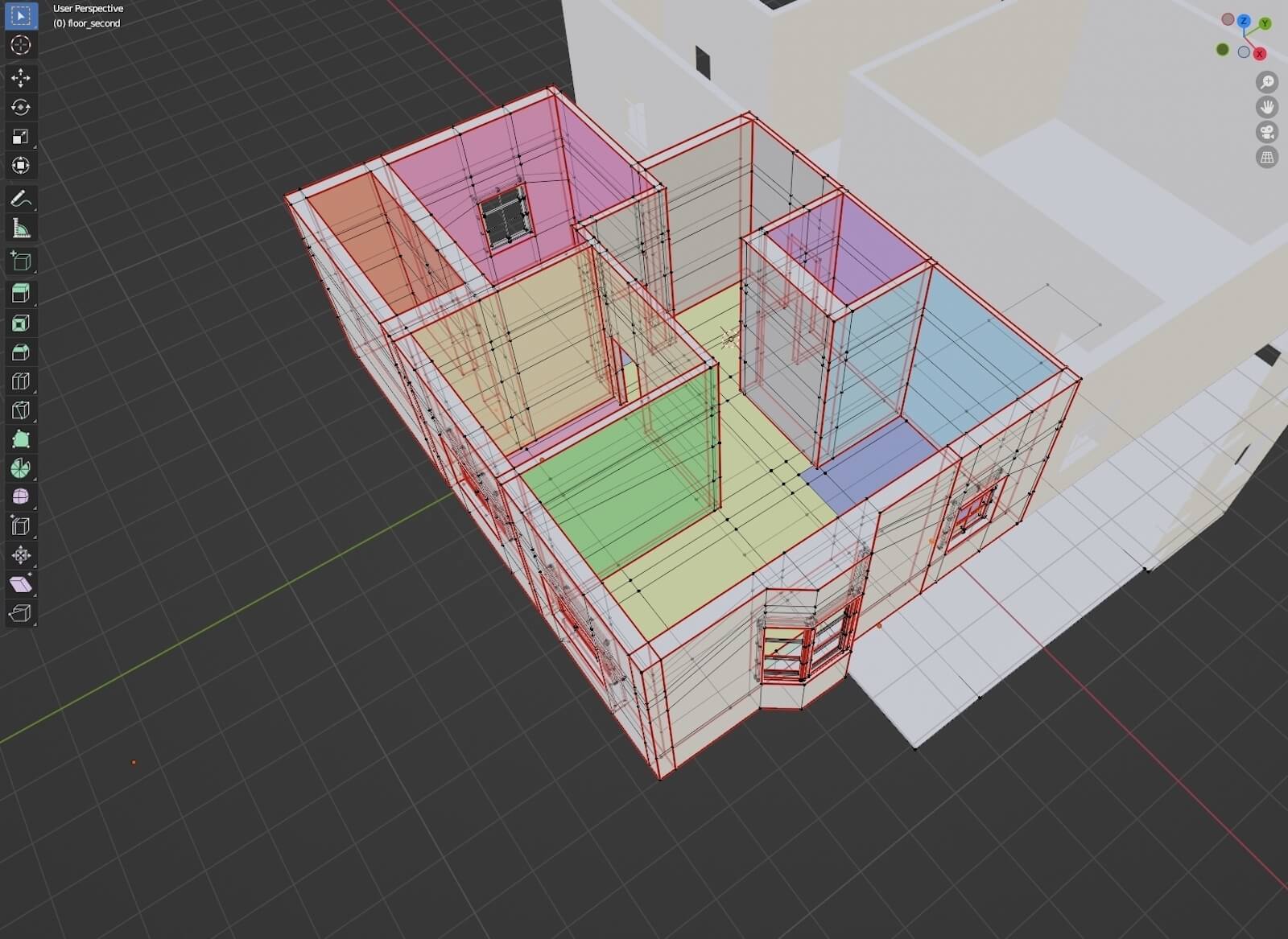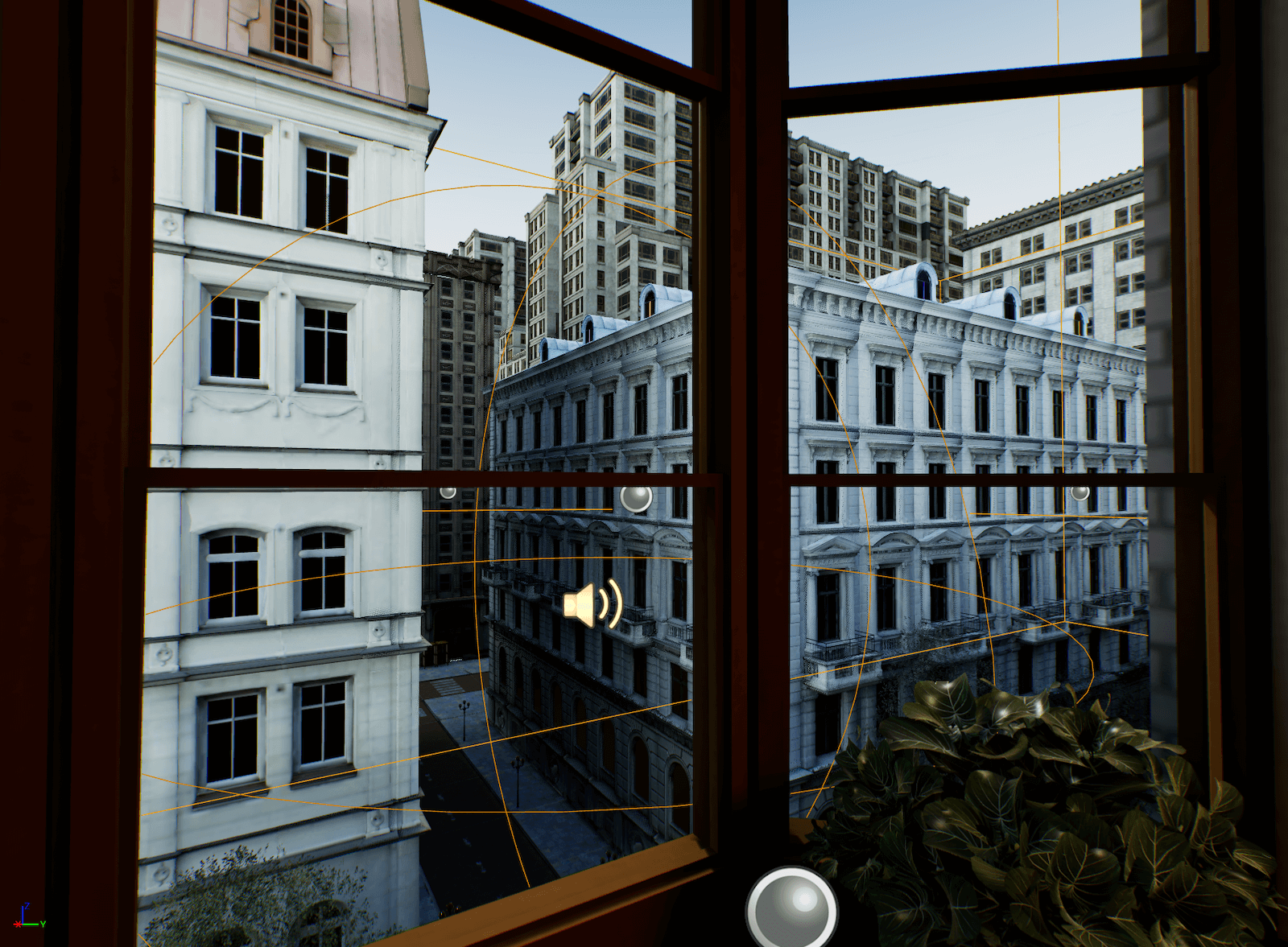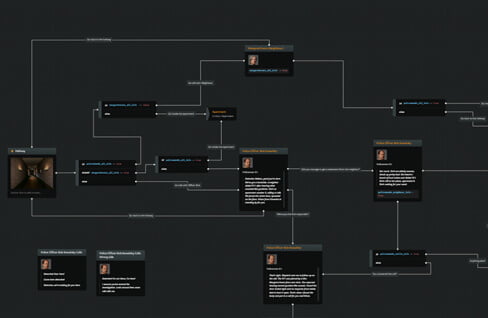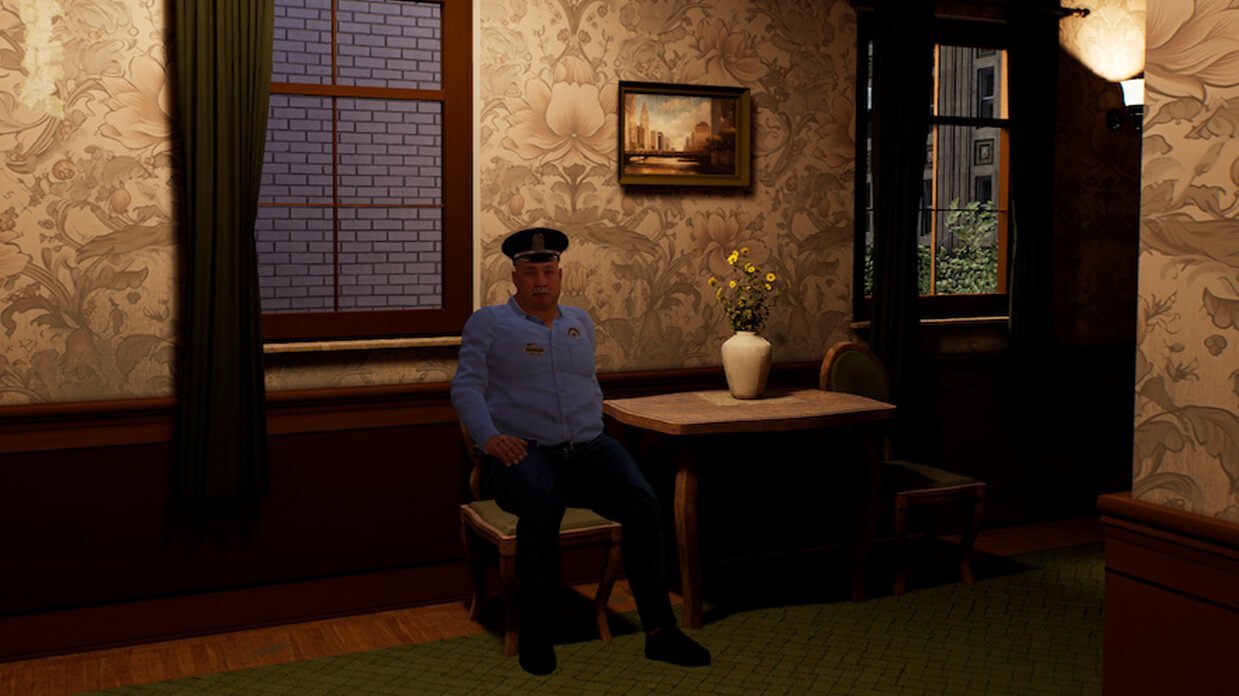
Marek Wasilewski
Co-Founder & Game developer
Project Scope
“Who Killed John Malone?” is a thrilling locked-room murder mystery set in the 1980s. Players must uncover the dark secrets behind the murder of John Malone, a morally ambiguous city council member. The game requires players to explore detailed environments, interrogate lifelike characters, and solve complex puzzles to unravel the mystery.
Challanges
Learning Unreal Engine and Blueprint Coding
Mastering Unreal Engine and its Blueprint system to create a complex VR game required significant learning and adaptation
Technical Constraints of VR
Overcoming the limitations of VR devices, particularly Android-based systems, necessitated optimization for shaders, performance, and interaction mechanics.
Operational Hurdles
Implementing realistic interactions, such as door opening mechanics and vector calculations, posed operational challenges.
Workflow Integration
Streamlining the workflow from Blender to Unreal Engine for seamless asset integration was critical.
Audio Integration
Ensuring immersive and high-quality audio experiences in VR.
3D Widgets in VR
Integrating interactive elements like notepads and subtitles in a 3D VR environment
Solutions delivered

Custom Animations and Interactions
Developed animations for realistic interactions (e.g., opening doors) by calculating precise distances and mechanics.
Specialized Testing Maps
Created dedicated maps to test various interactions and mechanics to ensure a smooth user experience
MetaHuman Adaptation
Adapted MetaHuman characters by exporting to Blender, removing unnecessary structures, and refining in iClone for optimal performance in Unreal Engine
Audio Solutions
Implemented advanced audio solutions to enhance immersion
3D widget integration
Innovatively integrated 3D widgets for an interactive and intuitive VR experience.
Why won’t you feel the game with us?
Graphics, Visuals, and Interactions
High-quality visuals are essential for immersion. After a year of testing, Unreal Engine allowed us to achieve stunning graphics and animations. Realistic characters respond to your location, gaze, and actions, making every interaction feel natural. Using Behavior Trees in Unreal, NPCs dynamically react to player behaviour. Creating dialogue components with blueprints resulted in engaging conversations.
Check our Unreal Engine-made kitchen that we developed for our game

And compare it to whole building sketches before we even launched the project.

Models & textures
Do you know what is even better? More decent structures made by our 3D designers, here You have some more:



Sound
Sound is crucial for immersion. Unreal Engine’s MetaSounds enables sound integration with game data and player actions. Ambient sounds, like street noises or conversations behind doors, enhance realism and immerse players in the virtual world.

Story & Plot
Story and Plot
As fans of crime stories, we aimed to create a game where players solve a murder mystery. VR allows us to make a game where you feel like a real detective, analyzing the environment, deducing, and having conversations. The plot is designed so players can identify the murderer even if they miss some details. Immersion helps players engage deeply with the story, enhancing their involvement and desire to explore the game’s world.
Here is our dialogue system, which makes our game more immersive for players.
Core Features and Gameplay Highlights

Explore Realistic Environments
Navigate high-definition settings to gather clues.

Interact with Lifelike Characters
Engage with characters, each with unique murder motivations, to gather information.

Deduction System
Use a special deduction system to connect clues and solve the murder.

Puzzle-solving
Solve unique puzzles to advance the story and unlock new areas
Results
Efficient Interactions
Successfully implemented realistic interactions and animations
Enhanced Immersion
Achieved high levels of immersion through detailed environments and lifelike characters
Optimized Performance
Ensured smooth performance despite VR constraints
User-Friendly Interfaces
Developed intuitive 3D widgets for a better user experience
Conclusion
Our VR game development expertise enabled us to overcome significant challenges and deliver an engaging murder mystery experience. “Who Killed John Malone?” demonstrates our ability to handle complex interactions, optimize for VR, and integrate advanced technologies. Our approach ensures our VR projects are efficient and scalable, and offer unique gaming experiences.
Our game will shortly be available for everyone!
Sign up for the newsletter and get information about intro and whitelist signup.

